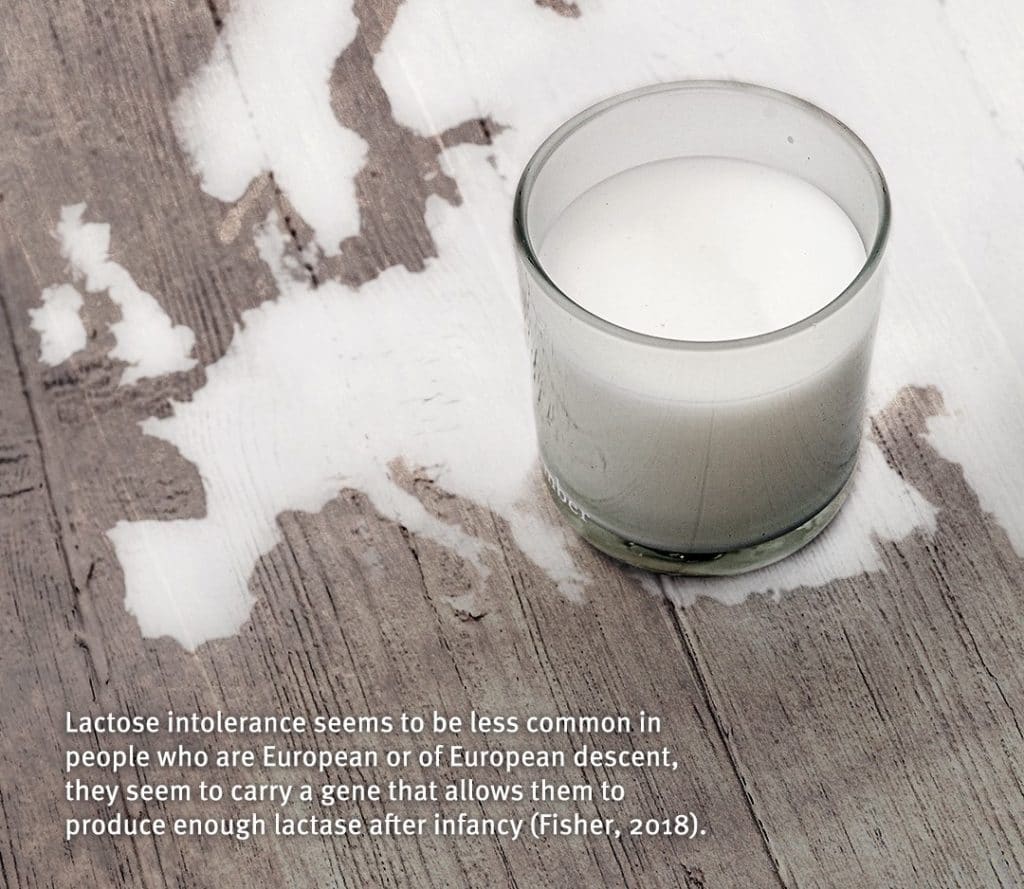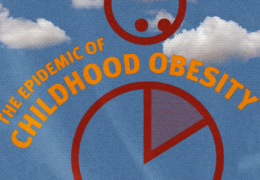Lactose intolerance happens when a person cannot digest lactose, a sugar found in milk, and gets adverse symptoms.
This is different from a milk allergy, which is when the immune system has a strong, often severe, reaction to a protein (allergen) found in milk.
Lactose intolerance is quite common around the world and in the United States, according to the National Institute of Diabetes and Digestive and Kidney Diseases (NIDDK).
They mention that about 68 percent of the world population and about 38 percent of people in the United States suffer from lactose malabsorption, the cause of lactose intolerance.
Certain ethnic groups are more likely to have lactose intolerance including: African-Americans, Asian-Americans, American Indians and Hispanics/Latinos (Fisher, 2018).
Lactose Malabsorption and Intolerance
Lactose intolerance is a condition in which a person gets adverse GI symptoms when they consume food or drink containing lactose, a sugar found in milk. When a lactose intolerant person consumes milk, for example, they can experience bloating, gas, and diarrhea.
These symptoms are a result of the lactose malabsorption, the small intestine’s inability to break down all lactose into smaller units that can be absorbed by the intestinal wall.
This is due to insufficient amounts of the enzyme lactase. Lactase is an enzyme that can clip lactose, a two-sugar molecule, into two small sugar units (glucose and galactose).
Why Insufficient Lactase?
According to the Institute of Quality and Efficiency in Health Care, humans are generally born with the ability to produce sufficient levels of lactase, especially since it is needed to digest breast milk as infants.
But as people get older, they start producing less lactase as they introduce different kinds of food into their diets.
Some of these people, however, will produce a lot less lactase as a result of genetic differences, which makes them less able to digest lactose (InformedHealth.org, 2006).
Lactose intolerance seems to be less common in people who are European or of European descent, they seem to carry a gene that allows them to produce enough lactase after infancy (Fisher, 2018).

Other ways in which the body’s ability to produce enough lactase can be compromised is due to damage to the small intestine from injury or disease.
Celiac disease, for example, a condition in which the lining of the small intestines is damaged as a result of an immune reaction to gluten, can compromise its ability to produce lactase. Some people are also born unable to produce lactase at all.
Treatment and Options
There are plenty of management options to prevent and limit adverse symptoms associated with lactose intolerance. Limiting foods containing lactose is a start, which may also include finding alternative sources of calcium and vitamin D to prevent their deficiency.
When it comes to milk: lactose-free milk, plant-based milk, or milk containing microorganisms that help digest lactose (such as acidophilus milk) are all options. One can also speak to a doctor about taking lactase separately to help with lactose digestion.
If one suspects lactose intolerance, there are a couple of tests a doctor can perform to help confirm the diagnosis. According to a post by the Mayo Clinic, a doctor may perform a hydrogen breath test or a lactose tolerance test.
In a hydrogen breath test, a breath test to measure hydrogen levels is done after consuming a large amount of lactose, too much hydrogen indicates intolerance.
In a lactose tolerance test, blood sugar is measured after consuming a large amount of lactose, and here, no rise in blood sugar indicates intolerance (Mayo Foundation, 2020).
At Santa Cruz CORE, we have experienced nutrition counselors that can help you deal with lactose intolerance and other diet-related issues. Give us a call or visit us today for more information.
References-
- Fisher , R. (2018, February). Definition & Facts for lactose intolerance. National Institute of Diabetes and Digestive and Kidney Diseases. Retrieved January 20, 2022, from https://www.niddk.nih.gov/health-information/digestive-diseases/lactose-intolerance/definition-facts
- InformedHealth.org [Internet]. Cologne, Germany: Institute for Quality and Efficiency in Health Care (IQWiG); 2006-. Causes and diagnosis of lactose intolerance. 2010 Sep 15 [Updated 2018 Nov 29]. Available from: https://www.ncbi.nlm.nih.gov/books/NBK310263/
- Mayo Foundation for Medical Education and Research. (2020, April 7). Lactose intolerance. Mayo Clinic. Retrieved January 21, 2022, from https://www.mayoclinic.org/diseases-conditions/lactose-intolerance/diagnosis-treatment/drc-20374238









Leave a Reply